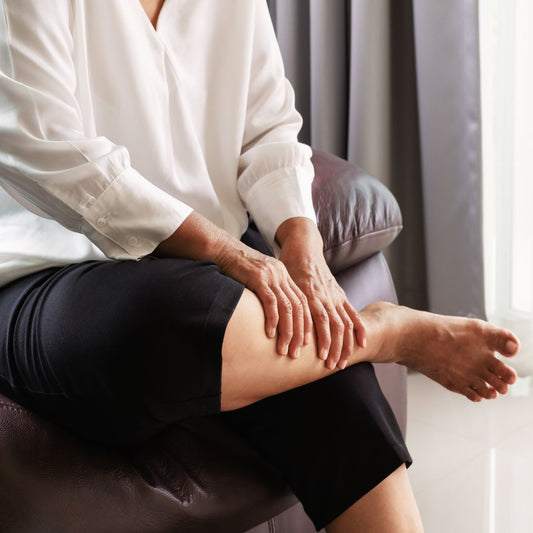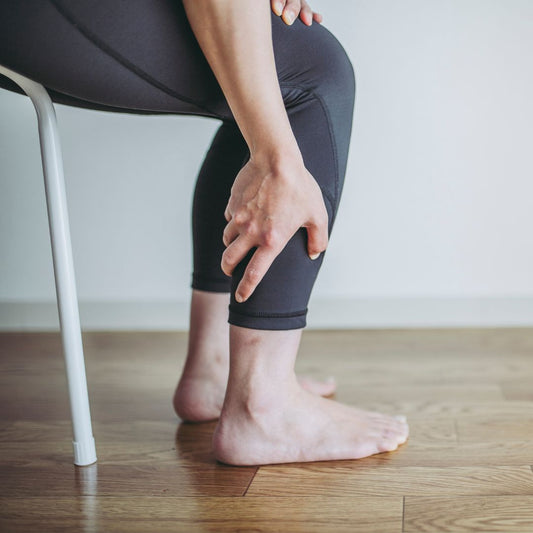Anyone who’s suffered with eczema can tell you that not every eczema treatment is right for every specific case. Everyone’s body chemistry is a little bit different, and many eczema treatments contain harmful chemicals that can damage your skin and possibly even make your eczema worse. Small lifestyle changes can go a long way to lessening your eczema, avoiding flare-ups, and living healthier. Let’s get started! Learn how to reduce eczema symptoms below.
1. Consider a Change in Diet
“You are what you eat” may sound a little ridiculous when taken literally, but there’s certainly a grain of truth in there. Everything you eat effects the way your body goes about day-to-day activities, and for people with eczema, what you eat can influence your flare-ups. Some have had success cutting extremely sugary, salty, or high-cholesterol foods from their diets entirely, and others have noticed that dairy causes them to flare up. Not sure what dietary changes are right for you? Pay a visit to your doctor – he has all the answers you need and more. If you’re looking for a place to start, cutting excess sugar, fats, and bad cholesterol from your diet is healthy, even if you don’t have eczema!
2. Explore New Skincare Treatments
If you have eczema, it’s likely that you’ve tried a few different skincare products trying to find the one that’s right for you, and that’s a great idea! Wondering how to treat eczema naturally? There is a way. While most eczema skincare products use harmful chemicals, toxins, and other artificial ingredients, there are inexpensive, natural, and effective homeopathic alternatives to common over-the-counter treatments like our Eczema Control.
3. Avoid Steroid Creams
This might be one of the most surprising things on this list. Hydrocortisone steroids are almost always prescribed by doctors and dermatologists, but could they be making your eczema worse? Many eczema sufferers have reported the same thing time and time again: steroid creams help at first, but after a couple of weeks, the eczema comes back worse than ever. Why could that be? Because of your body’s adaptive nature. Sustained use of hydrocortisone steroids causes the skin to develop tachyphylaxis, a resistance to the medication itself. As your resistance builds, so will your symptoms and the amount of cream you’ll need. Consult your doctor or dermatologist for more information.
4. Drink Plenty of Liquids
Water is good for you! It’s the essential essence of life, and while a little bit is needed just to keep us alive, a thoroughly hydrated body is all-around a much healthier body. That remains true for eczema sufferers. Drinking plenty of water every day leads to many positive health effects, it absolutely won’t hurt you, and it might go a long way to reducing your eczema symptoms.
5. Sleep, Stress Less
Stress and your level of exhaustion are two more factors that influence your body’s overall ability to function. Without plenty of sleep, your body can literally begin to waste away, so make sure to get a good night’s sleep. A well-rested body is better equipped to fight eczema. The same goes for stress. Surprisingly enough, stress has as many physical repercussions as psychological ones, and a stressed body is a lot like a tired one. Looks like it’s time for a vacation! What is eczema doing when you’re stressed out? While stress may not directly cause breakouts, it may cause you to scratch at your eczema, which leads into…
6. Scratching is a Terrible Idea (But You Probably Already Know That)
We know how bad eczema can get, and we sympathize with anyone caught in an extremely itchy breakout, but it is extremely important not to scratch. It’s difficult not to scratch, and the persistent itch makes it even harder, but scratching will make all of your symptoms even worse. There are alternatives to scratching such as patting your skin, blowing on it, or dampening it with a cold compress.




